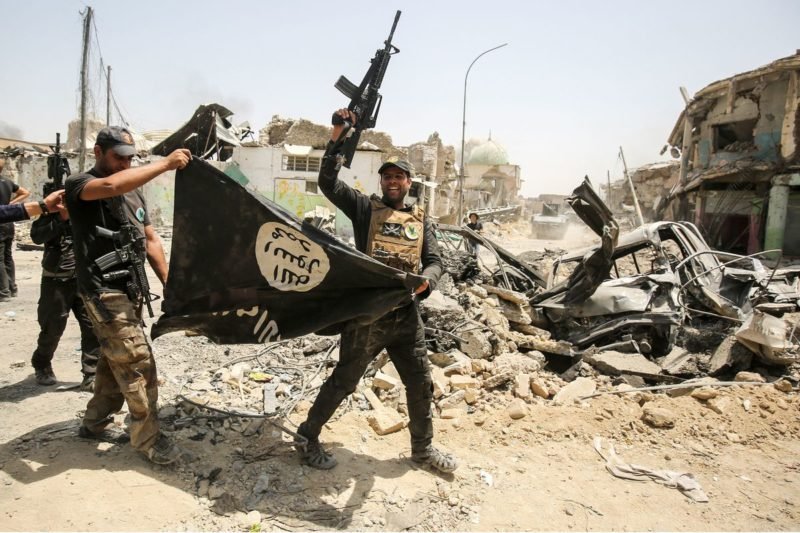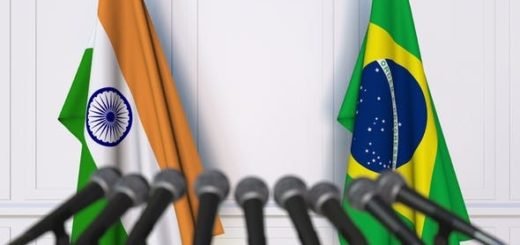A New Hope in El Salvador: ‘El Salvador will be Beautiful’
Presidential Elections have ended decades-old domination by a two-party coalition. However, key challenges remain for Salvadorians at home and abroad writes Dr Ravindranathan P

The El Salvador election marks the changing political environment of Latin America. Nayib Armando Bukele Ortez (Nayib Bukele) will be the youngest president in the present Latin American political generation unless Juan Guaido successfully took over the position in Venezuela. 1981 born Bukele defeated the Hugo Martinez of the ruling FMLN party and Carlos Callejas of the opposition ARENA party. The two-party coalition has been ruling ever since a peace accord was signed in 1992. The current elections with more than 4000 election observers ensured that the electoral process was free and fair.
Since 1990, the post-dictatorship period, elections have been routine in the region. Most of the countries are back in the track of democracy and fulfill the routine election process according to the tenure. Most countries in the hemisphere contested elections on the basis of political ideologies of their political parties. However, of late, the trend is changing by electing a third candidate who stands away from the traditional political lines. In this regard, the result of El Salvador election is very significant to mark the political turning point in Latin American politics.
In fact, this trend started in Mexico in the 2018 presidential election when they elected Andre Manuel Lopez Obrador (AMLO). He defeated the traditional ruling and opposition parties in one go under the banner of MORENA party. Mexico successfully elected presidents from single-party till the end of the last century changed its position by electing the traditional opposition party to power in the year 2000. In 2018, Mexico elected a president from the third political party. Political scientists marked it as the maturation of democracy in the country.
The victory of Bukele on 3 February 2019 literally fulfills the democracy defined by Samuel Huntington who defined that the change of political parties winning the election marks the maturity of the political system. On the basis of such observation, El Salvador presidential election deserves to be called “historic” and “the ultimate test of the democratic system” because it fulfils the conditions on democratic transition.
Though he won with a thumping majority, it won’t be an easy task for Bukele to survive in the existing political environment of El Salvador. He has to address the political, social and economic issues that drag the country backward for long period. There would also be a need to deal with the leaders of the existing political parties, with some of them who he associated closely until the presidential election. He has to negotiate with the external factors that influence the political and economic environment of El Salvador. After all, he has to do something substantial for the people who elected him with a large majority.
El Salvador carries the baggage of some of the worst elements that include military coups, dictatorships, guerrilla movements, left and right wing extremism, repressive state, and chaotic economy. The concepts of democracy and its institutions failed to develop its own political culture and on various occasions, the leadership failed to defend the external influences. Considering El Salvador was one of the last countries come out from the clutches of the military it has to start its political process from the very start. Carefully nurturing its own political culture and balancing economic disparities forcing its citizens to either flee the country or resort to gang violence which has claimed multiple lives.

Nayib Bukele claims victory in El Salvador presidential election /Image: France 24
Since the end of the long term dictatorships, El Salvador tried to get back to the electoral politics in the early 1980s by drafting a new constitution. The present opposition National Republican Alliance (ARENA) [Alianze Republicana Nacionalista] appeared on the political map of El Salvador in 1981 and won the presidential election in 1989. Meanwhile, the present ruling party Farabundo Marti National Liberation Front (FMLN) [Frente Farabundo Marti para la Liberacion Nacional] was a coalition of guerrilla organizations and not in the electoral politics. Efforts of the United Nations to mediate a peace accord started became successful in 1992 when both parties signed the Chapultepec Peace Accord and brought FMLN to mainstream politics. From 1992 to 2009, the ARENA party succeeded in winning elections and FMLN remained as the main opposition. The equations changed in 2009 when Mauricio Funes of FMLN won the presidential election and they continued to be in power in 2014 election.
A survey across the Latin American region reveals that most countries follow the same pattern of competition between the traditional ruling and opposition parties. Whenever there is a crisis, they form a coalition of parties on the basis of ideology to fight the opponent. Hence, it is very rare to see the emergence of a new front leading and winning elections. It can be argued that Mexico did it and El Salvador did in a better way. Whether it is an indicator of further changes in the electoral politics of Latin America? Only time will tell us.
El Salvador still carries baggage of the Cold War much like the other countries in Central and South America. While the region witnessed military coups, the mostly left-wing movements formed a part of the resistance in the countries. However, both sides were supported by the bipolar leaderships of the world. In El Salvador, When the left wing strengthened their guerrilla offensive, the ruling government used brutal force to suppress the rebels and more than 70,000 lives perished in the entire episode. However, like most of the regimes in the region, the relationship with the United States was often asymmetrical. As part of containing communism, the United States joined hands with the military junta to suppress the left-wing guerrillas and provided arms, training, and finance support to the state forces. The post-1992 administration continued the relationship with the US and it was taken forward by the leftist leadership since 2009.
El Salvador continued to receive a major proportion of aid allocations and other developmental assistance. However, US-El Salvador relationship has bene receiving some setbacks due to the policy decisions of US president Donald Trump. Chaotic socio-political environment and economic insecurity in the country have forced people to find better opportunities and migrate to other countries, especially to the US. Changes in the immigration policies, especially the termination of ‘Temporary Protected Status (TPS)’ affected the lives of Salvadorans badly.
The biggest challenge for the incoming Nayib Bukele administration would be to deal with the present US administration and its anti-migration policies. El Salvador is surviving largely on the remittance from the illegally migrated citizens. US sources count that the number will exceed 1.4 million and half of them are now facing problems from US authorities for staying without permission. As per World Bank data, 20 per cent of the GDP of El Salvador comes from the remittance accounts of legally or illegally migrated Salvadorians.
Some of the political positions, regarding foreign policy, of the present government, irked the US administration and Marco Rubio, the influential Republican Senator. El Salvador was one among many countries recognised Taiwan and established diplomatic relations in the early 1960s and overlooked China (PRC). The leftist administration of Salvador Sanchez Ceren surrendered its long-standing political position by severing diplomatic ties with Taiwan. The US noted this behaviour and viewed that China’s actions are harmful and would not contribute to regional stability. The newly elected president will face a challenge to retract his government to its earlier position.
Another challenge for the new president will be from the economy of the country. At present, the economy of the state shows an average of 2.3 percent growth and the IMF predicted that it will reach 2.5 percent in 2018. Natural disasters like a flood in 2017 and drought in 2018 hampered the possible economic growth. As mentioned above, a sizable part of its income is coming from remittance from abroad. Anti-migrant policies of the Trump administration will create an adverse impact in this regard. Along with the increasing violence from the street gangs and other illegal activists, the economic outlook of the country seems to be bleak.
Above all, rampant corruption among the higher authorities derailed the trust of the people on public administrative and political institutions. The former president, Mauricio Funes, is facing corruption charges and trying to get political asylum in other countries. Nayib Bukele is well aware of the impact of corruption and found that it will be the best tool to use against the ruling and opposition parties effectively. His campaign was focused on anti-corruption and build upon the slogan “El dinero alcanza cuando nadie roba” (There is enough money when no one steals) which attracted the young voters than the dry ideology of the traditional political parties.
Bukele will assume the office on 1st June 2019. His political adventures were so far successful but the real test is waiting in the President’s Office. If he can achieve half of the expectation, El Salvador will near to the dream of their famous 20th-century poet Roque Dalton in his poem “El Salvador will be”.
El Salvador will be a beautiful
and without exception, a dignified country
when the working class and the people of the countryside
enrich it, bathe, powder and groom it,
when they cure the historical hangover
and add enough to it by a hundred fold
to reconstitute it
and start it moving along.
….
*Dr Ravindranathan P is an Assistant Professor at the Department of Geopolitics and International Relations, Manipal Academy of Higher Education, Manipal. He wrote this analysis originally for
The views and opinions expressed in this article are those of the authors and do not necessarily reflect the views of The Kootneeti Team


















